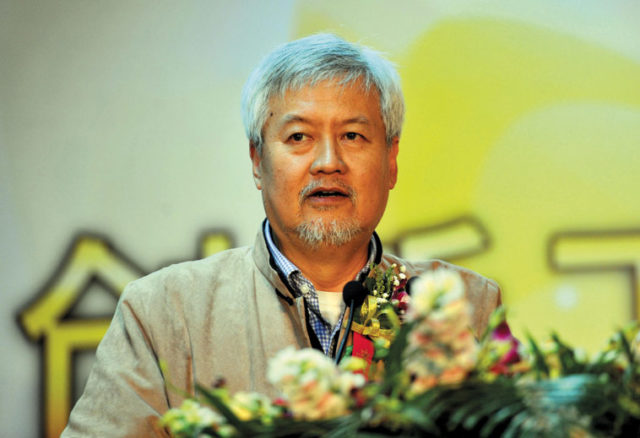According to reports in the Hong Kong media, at the August 2013 National Thought Work Conference, Xi Jinping spoke about the need to purge online rumours and for the state to build a ‘strong army to seize ground of new media’.

Chinese-American investor and Weibo celebrity Xue Manzi (Charles Xue) at an event in Beijing, 20 April 2012.
Source: ImagineChina
On August 23, Chinese-born American-passport-holding businessman and famous microblogger Charles Xue (Xue Biqun, or Xue Manzi) was arrested and accused of soliciting prostitutes. Over the next two weeks, Xue was featured in multiple China Central Television (CCTV) news shows in which he confessed firstly to soliciting prostitutes, and then to misleading his more than twelve million followers on Weibo for vanity; Xinhua reported that ‘he offered to appear handcuffed as a negative example to publicise the online rumors crackdown’.
As part of the same campaign, another famous microblogger, the real estate developer Pan Shiyi was featured in a CCTV package, stuttering and agreeing with the interviewer that ‘online rumours’ could harm society.


